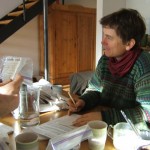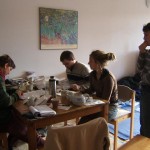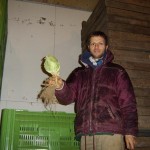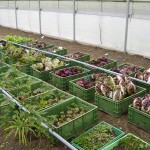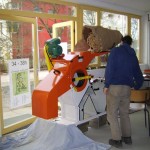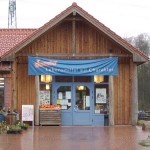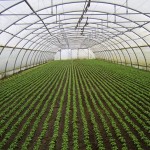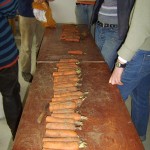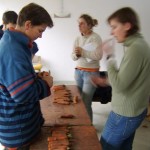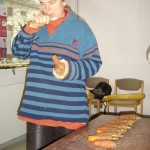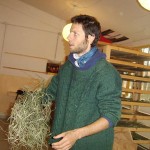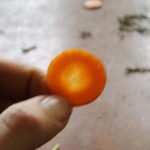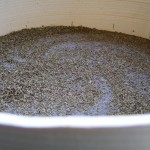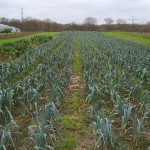“One of the central hubs of German biodynamic plant breeding community”. We were told this by many people through our travels and we decided that we had to visit Dottenfelder-hof (translated version). After a nice hike in the morning from the train station we arrived invigorated to meet with our host Martin Kern, a very personable character with many years of plant breeding experience. Martin showed us all around the Hof, with brief stops at many of the farm’s constituent areas. . In German biodynamic tradition the site is the collection of many integrated and collaborative facets. Some examples of these endeavors are the plant breeding programs, dairy cow and chicken production, cheese and bread making, anthroposophical educational programs, and a biodynamic storefront. Many of the people who worked there lived there too and with all that was going on, it was a bustling scene (about 100 people living and working there). I could compare it to intentional communities in the US but that would be misleading. The place seemed more like a well organized, fairly self-sustaining village. Lots of people making a living centered around an agricultural and educational foundation.
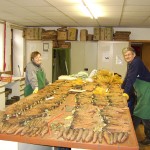
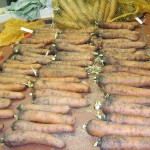
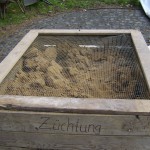
Rodelika carrot tasting, selection and overwinter storage
Some of their achievements in the area of plant breeding:
Carrots – Dietrich Bauer has spent over 20 years breeding vegetables. What he is most famous for is his carrot variety ‘Rodelika’, available in the US through Turtle Tree Seeds. This carrot is famous for its flavor, especially when juiced. “Rodelika” juice is available in the juice section of many stores that carry biodynamic products, right next to the standard “carrot” juice. More marketing with variety names is something that could help expose people to the diversity of crops and help preserve those crops actively within society, like an old story or play. While at Dottenfelder-hof we helped select Rodelika lines for flavor and yield. Getting both flavor and yield simultaneously is one of the more difficult aspects of plant breeding. By the way, the carrot juice is excellent.
